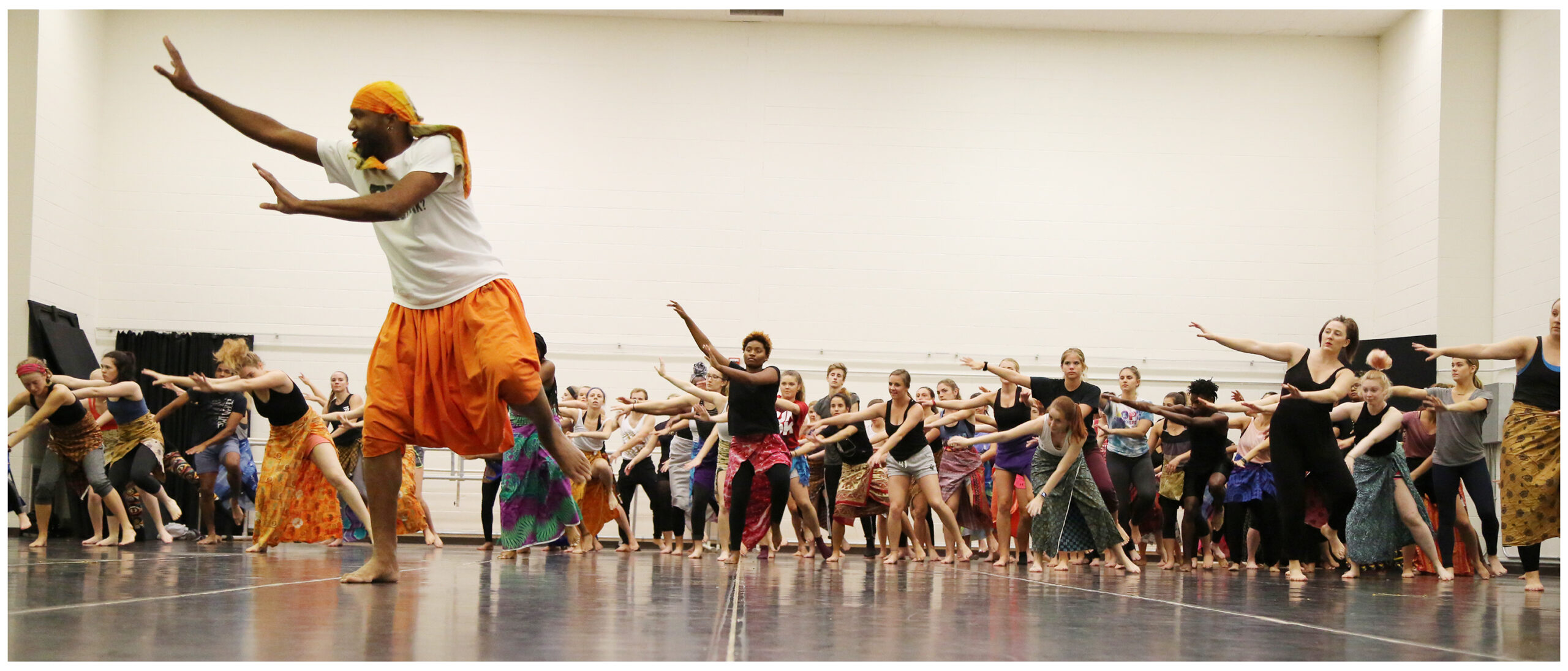For Stafford Berry—artist, educator, and African dance instructor—legacy is an integral part of his practice.
“I am a descendant of two really important African dance progenitors in the United States: Mama Kariamu Welsh and Baba Chuck Davis,” says Berry. “They taught me and allowed me to experience much of what I know now and much of what I am a caretaker of.”
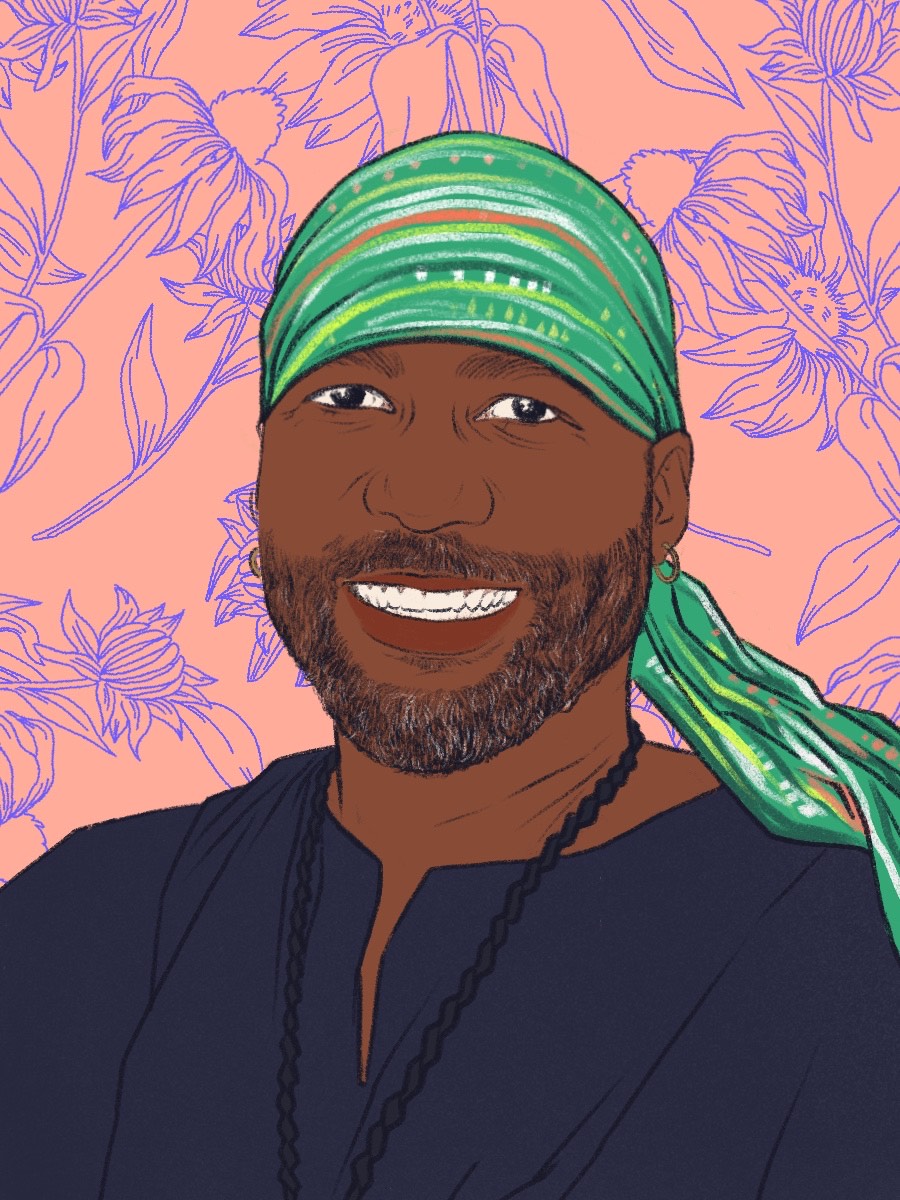
As professor of practice and director of the legendary African American Dance Company at Indiana University Bloomington, Berry passes this legacy on to his students.
“African dance accepts you the way you are,” says Berry, known as “Baba Stafford.” “You don’t have to have studied ballet, tap, and jazz since you were four…you don’t have to know what to do in a dance studio.”
Berry’s introduction to dance came from childhood, when his mother played soul music during Saturday morning chores. “That was my earliest memory of embodied practice: we would dance!”
His life changed when he took his first West African dance classes at the Community Education Center in West Phila and studied the Umfundalai Technique with Dr. Welsh.
“I didn’t know that performance, that storytelling, that sharing aspects of very old and very ancient culture, was possible in the ways that she did it,” says Berry. Shortly thereafter, he joined her dance company. He spent 14 years with Chuck Davis’s iconic African American Dance Ensemble, during which he served as associate director. He also taught for eight years at Denison University in Ohio.
Berry describes himself as “an Africanist who does embodied practice.” This includes African dance, choreography, and cultural aesthetics spread throughout its diaspora. “I have a concern and interest in the wellbeing of Black and otherwise marginalized folk,” says Berry. “It is via my practice that I engage, that I advocate for, that I tell stories about, and that I share Africanist aesthetics for the wellbeing of those folk.”
“We have forgotten as a larger culture that the first and most immediate way we learn about the world is through our embodied engagement,” Berry continues. “It is a very, very viable way for us to learn. African dance taught me this. It’s holistic; it utilizes all the parts of the world around us and all the parts of our bodies. It doesn’t throw them away and only focus on beauty; it focuses on everything. Everything is important and affects the dance.”
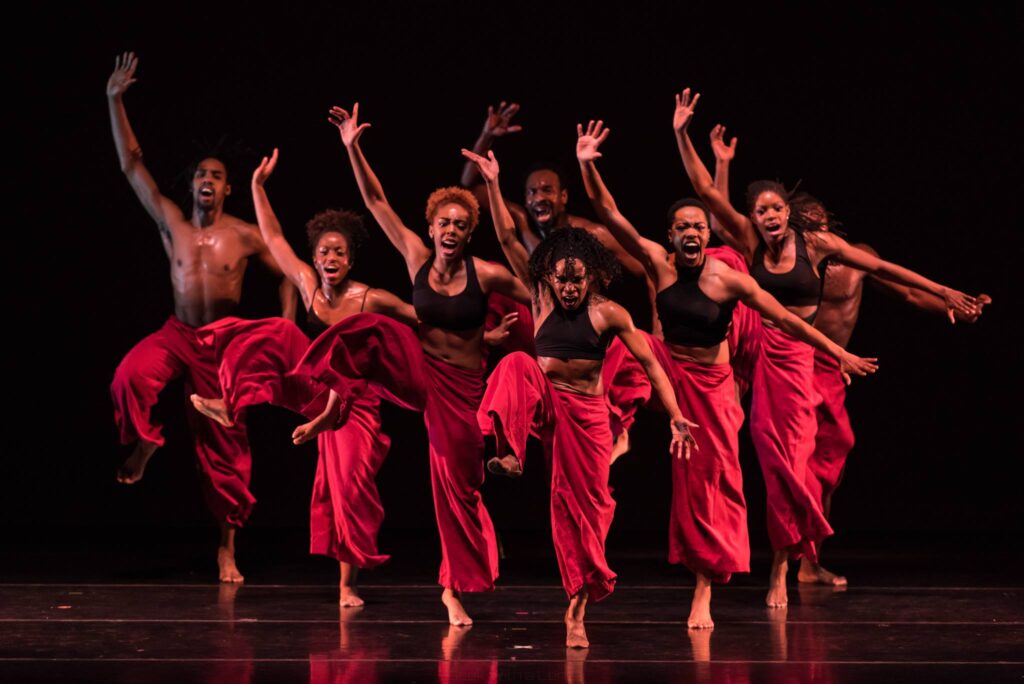
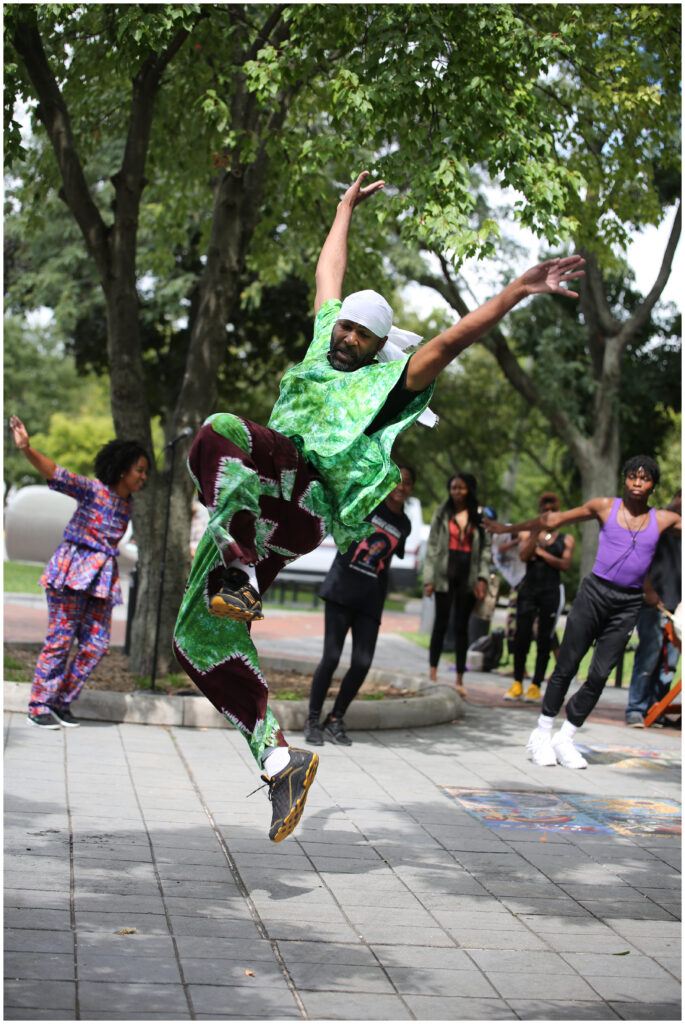
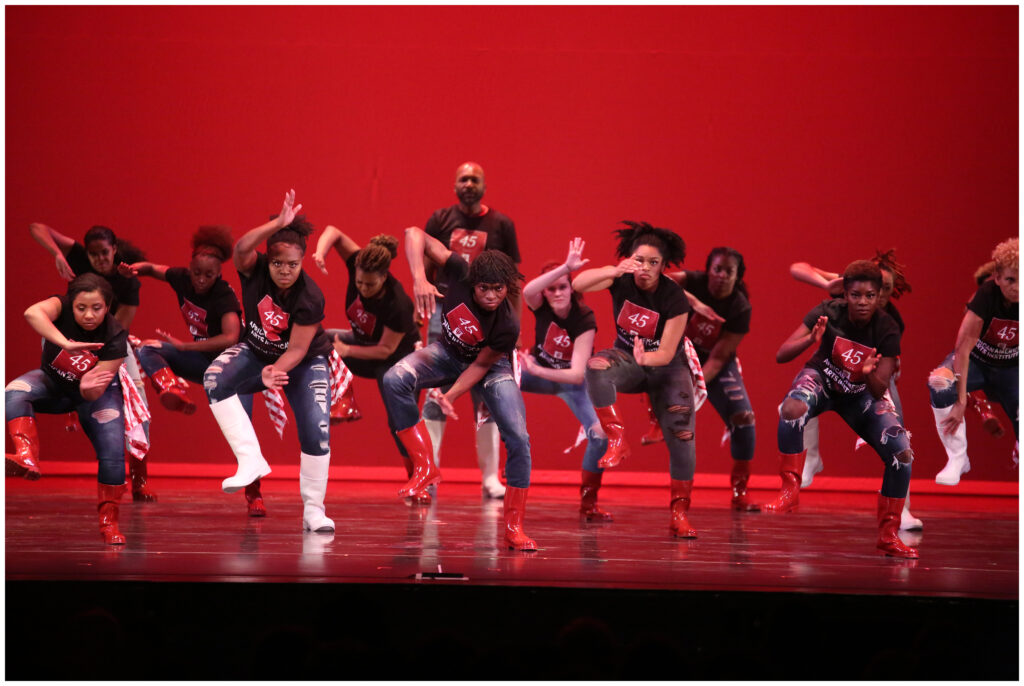
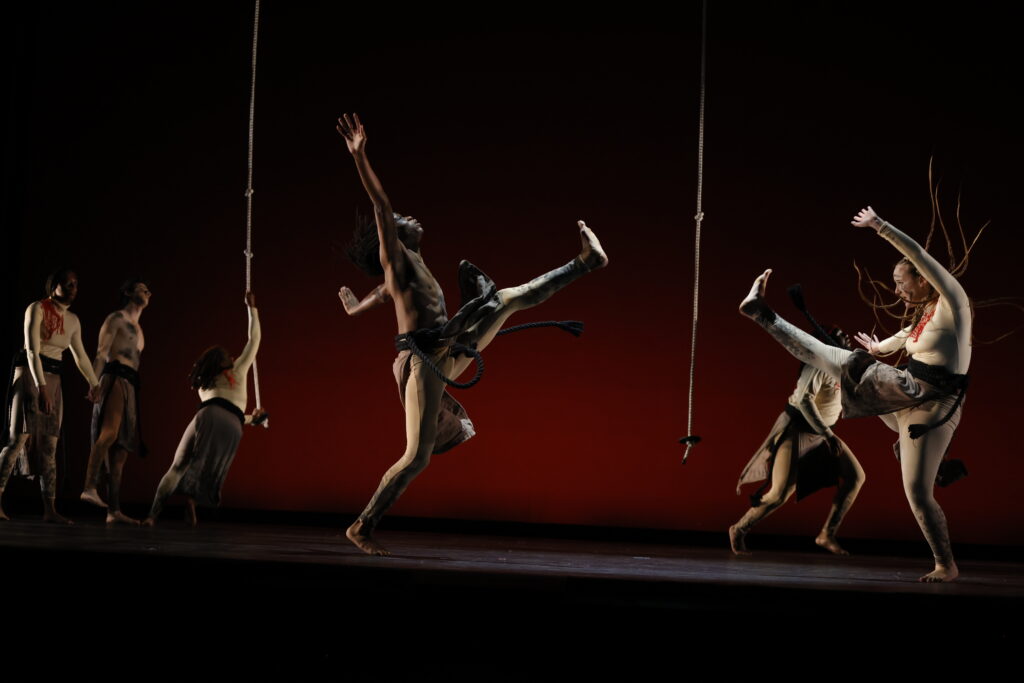
Receiving the Midwest Culture Bearers Award was a rewarding surprise. “I knew my work was valuable,” he says, “but I didn’t think granting organizations would see it as valued.”
This year, the Dance Company is celebrating its fiftieth anniversary, which brings Berry back to the idea of legacy. “We get to teach and share with people the legacy that’s associated with this dance company. I’m watching the students slowly, moment by moment, day by day, performance by performance, walk in that knowing. I’m watching their light sparking a bit brighter than when they first arrived.”
Stafford Berry is a 2024 recipient of the Midwest Culture Bearers Award, which celebrates and financially supports the work of Midwest culture bearers and folk arts practitioners.
The Midwest Culture Bearers Award is supported by Margaret A. Cargill Philanthropies with additional support from the National Endowment for the Arts for project management.
